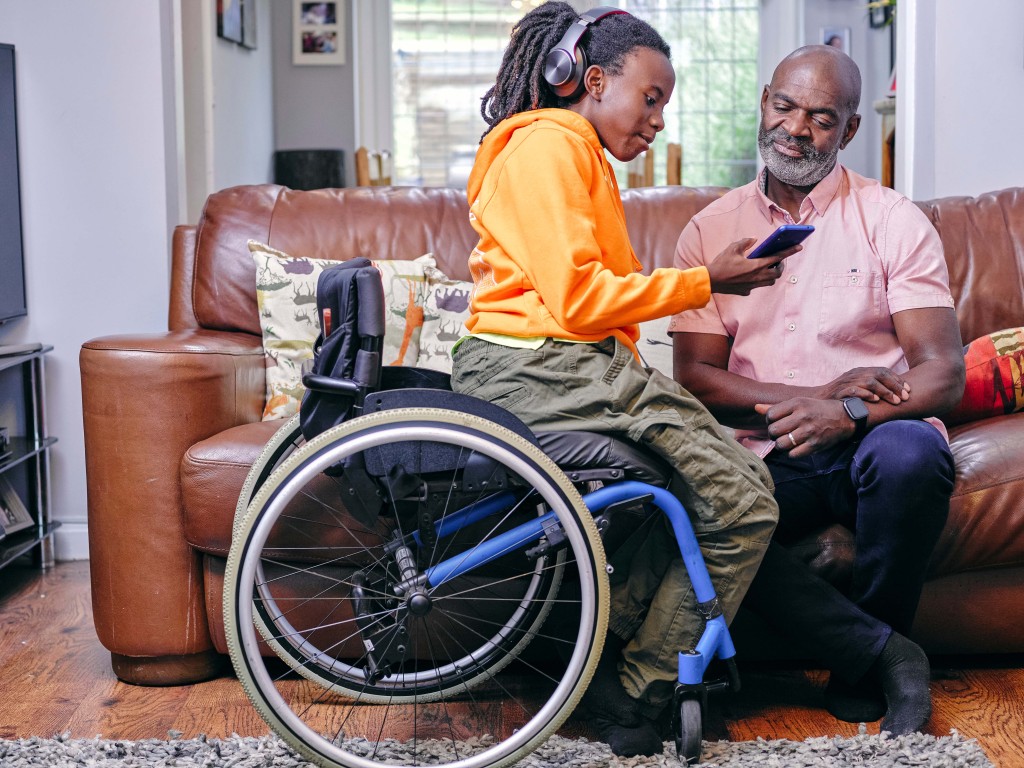Black Health and Wellness is the 2022 Black History Month theme. There is no better time to talk about the intersectionality of ableism and racism than right now.
According to the Centers for Disease Control and Prevention (CDC), social disparities faced by the Black community are contributing factors to increased health risks. Among these are unemployment and poverty, both contributing factors to the ability to afford doctor’s visits, healthy diets, and insurance. Members of the Black community are dealing with chronic health conditions such as diabetes and heart disease at earlier ages than other races.
Impact to the Black community is not limited to physical health; disparities in access to mental health and wellness resources can be found as well. Members of the Black community are more likely to report mental health concerns, but 50% less likely to receive counseling or mental health treatment according to a white paper by Cigna.
Dr. Sharrelle Barber, Director of The Ubuntu Center on Racism, Global Movements, and Population Health Equity at Drexel University, has conducted research throughout her career as a social epidemiologist on the intersection of “place, race, and health.” Her interdisciplinary research focuses on the connection between structural racism with factors such as poverty to create racial health inequities. “Our bodies respond to all these exposures that take place in neighborhood environments, such as the lack of affordable healthy foods and over time chronically show up as cardiovascular disease, diabetes, or other risk factors,” according to Dr. Barber.
These disparities have come under a spotlight during the COVID-19 pandemic, with CDC reports showing a higher number of cases, a higher rate of hospitalization, and an increased rate of death for members of the Black community. For members of the disability community, COVID-19 meant denial of civil rights based on guidance proposed in several states regarding COVID-19 treatment rationing. For Michael Hickson, a husband and father of five, being Black and disabled was a death sentence.
After surviving sudden cardiac arrest in 2017, Hickson’s life was changed – he was now a person with multiple disabilities, including quadriplegia and a brain injury. Too many who look in from the outside, could see only what Hickson had before his cardiac arrest and what he lost. They forget that change is a part of life and that we must adapt to that change. His wife saw what he still had – time with her, time with their children. The opportunity to laugh and share with his family, to see his children grow. This is often the case for people with disabilities. People judge quality of life based on a biased and stigma-ridden perspective. They don’t see the joys that person experiences – only the disability. They forget that people with disabilities are people first – husbands and fathers.
When Hickson was diagnosed with COVID-19, the decision was made, against his wife’s wishes, to stop treating him. What followed was six days without food, water, or medical treatment as the medical team waited for Hickson to die. Hickson’s story was shared on an international stage, complete with an audio recording of his wife pleading with a doctor to provide treatment, but only after an outcry from the disability community and other social groups.
As the scope of the pandemic was being realized, several states including Pennsylvania, put out COVID-19 medical rationing guidelines that put rights of patients with disabilities, like Hickson, at risk. The disability community filed civil rights complaints with the U.S. Department of Health and Human Services’ Office for Civil Rights (OCR) leading to updates of these guidelines that removed direction to deprioritize treatment of people in need of critical care based on disability.
However, it is important to note, that these health and wellness disparities for Black Americans have existed long before the start of the pandemic – as have discussions about ‘quality of life’ determinations that can lead to assisted suicide or lack of medical treatment for people living with disabilities.
As we celebrate Black History Month this February, we must renew our commitment to inclusion and continue to fight against ableism and racism.
We must ensure that people know that there are avenues available to gain assistance when experiencing discrimination in accessing health and wellness resources. We must ensure that these resources remain available and are supported by our communities. Civil rights are always in jeopardy – only by being vigilant and engaged can we keep what was won.
We must remain steadfast in our demand for equity. We must never settle for the status quo. Only by continuing the fight our disability leaders, like Ed Roberts, Justin Dart and Judy Heumann have begun, can we realize the true potential of their dream. We are not there yet, there is still much work to be done and it is up to all of us to support each other as we fight for that next inch, that next foot in the battle to end racism and ableism.
For our team at Bender Consulting Services, this battle is fought on the employment front. When there is equity in hiring, we believe resources become better shared across all communities. When there is equity in opportunity, we believe people reach new heights of achievement. When there is equity in the workplace, we believe that we create a better world for all people.
